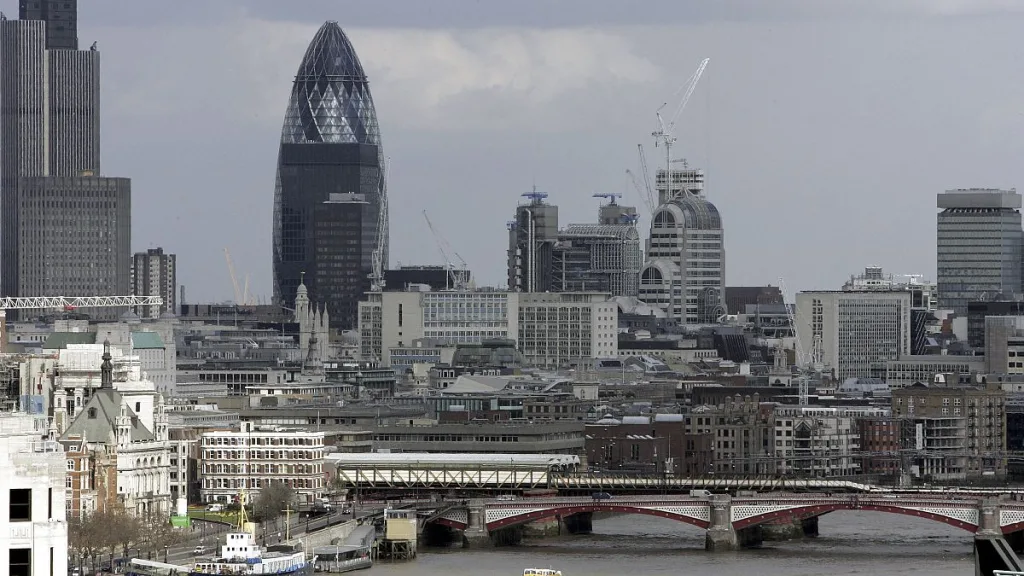The UK economy showed signs of recovery in November 2024, bouncing back from an unchanged contraction in October. This growth is good news for Chancellor Rachel Reeves amid the bond market turbulence that has cast doubt on her fiscal strategies.
According to estimates, the UK’s monthly real Gross Domestic Product (GDP) grew by 0.1% in November, primarily fueled by an uptick in services, following an unrevised decline of 0.1% in October 2024. Interestingly, the data from the Office for National Statistics (ONS) indicates that Real GDP did not record any growth over the three months leading to November, in comparison to the previous three months ending in August.
“The near stagnation of GDP in November dampens some of the optimism generated by an unexpected drop in inflation the day before,” remarked Samuel Edwards, head of dealing at global financial services firm Ebury, in a communication to Euronews Business. “Additionally, the widening trade deficit underscores the ongoing challenges for UK businesses navigating a complex global environment.”
Edwards elaborated on the opportunities and challenges posed by the incoming US administration. “While uncertainty remains regarding policy direction, there is hope that improved trade relations could unlock significant potential in one of the UK’s most important markets. At the same time, the government’s initiatives to enhance relationships with both the EU and China signal a strategy aimed at diversifying export options and bolstering long-term economic resilience.”
The global trade environment remains rife with unpredictability, and recent volatility within the UK market serves as a stark reminder of the risks businesses confront. Edwards cautioned that exporters need to adopt proactive measures to mitigate potential risks related to currency fluctuations and supply chain disruptions. Strategic planning, encompassing robust hedging and ensuring a fluid access to financing, is crucial for those aiming to excel on the international front.
Chancellor Finds Comfort Amid Challenges
On a more positive note, a surprising decline in inflation figures from December has provided some reassurance for the Chancellor.
“UK stocks and gilts experienced a rally following this news,” observed Alice Haine, a personal finance analyst at Bestinvest by Evelyn Partners, in her commentary to Euronews Business. “This comes after a tumultuous beginning to 2025, where fluctuating growth and inflation expectations, both domestically and in the US, coupled with concerns about the ramifications of Reeves’ tax increases, led to rising bond yields and a weakening pound.”
However, the future trajectory of growth remains uncertain, as there are numerous obstacles on the horizon. Haine noted that traders are increasingly betting on the Bank of England implementing further rate cuts next month, a move that would offer much-needed relief to borrowers facing steep mortgage and debt repayments.
Inflation pressures persist, compounded by rising energy costs and the tax increases outlined in Reeves’ budget, set to commence in April. “Employers are facing the added burden of increased national insurance contributions and minimum wage hikes, with major companies already signaling plans to transfer some of these costs to consumers via price increases. This situation may lead to concerns regarding job security and pay growth as businesses reevaluate their staffing expenses for 2025,” Haine added.
Recent ONS data also revealed that the overall goods and services trade balance (excluding precious metals) deteriorated by £3.8 billion, widening the deficit to £10.8 billion over the three months leading to November 2024, compared to the previous three months ending in August. Notably, total exports decreased by £9.2 billion during this period, while imports fell by £5.4 billion.
Photo credit & article inspired by: Euronews



